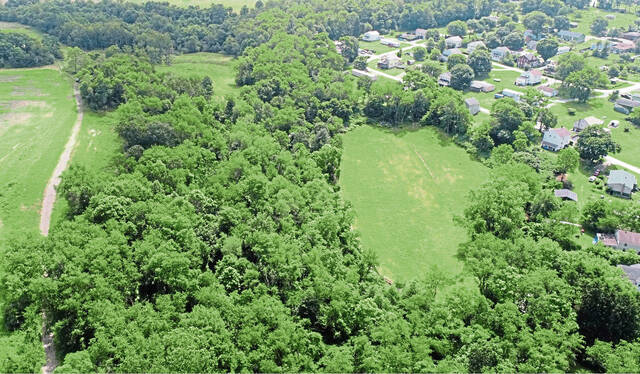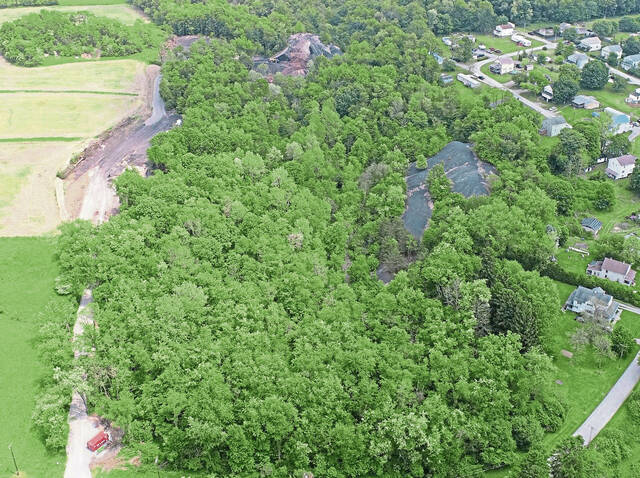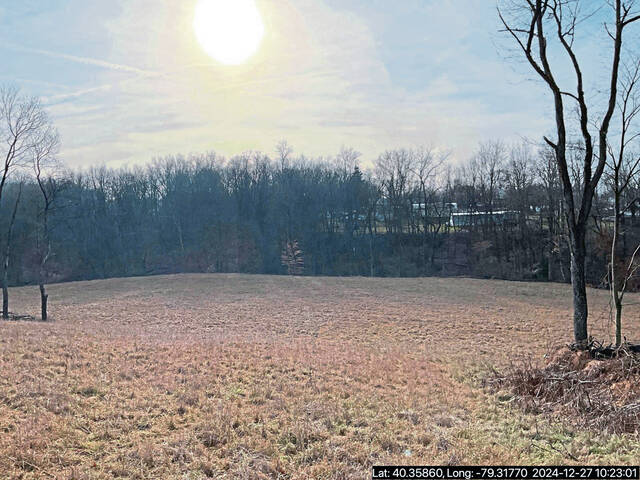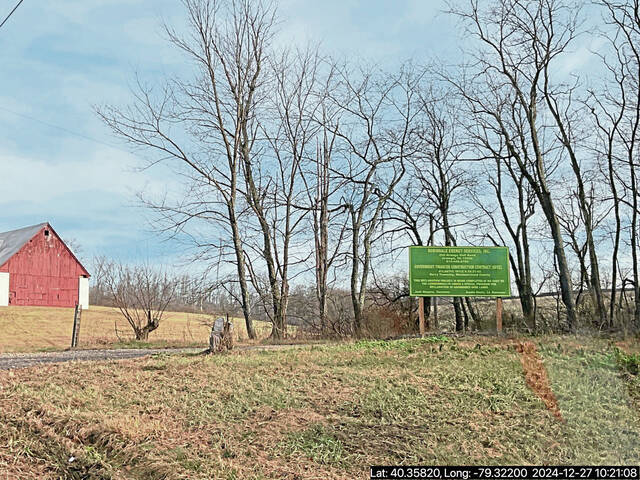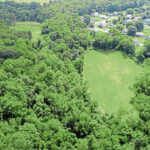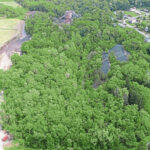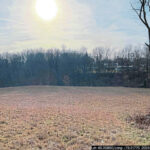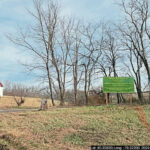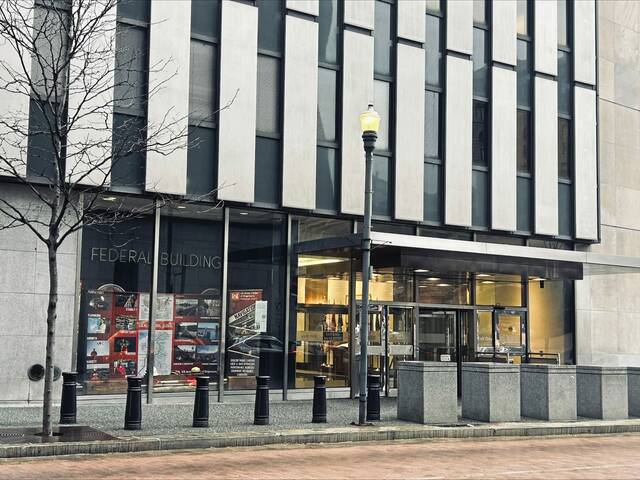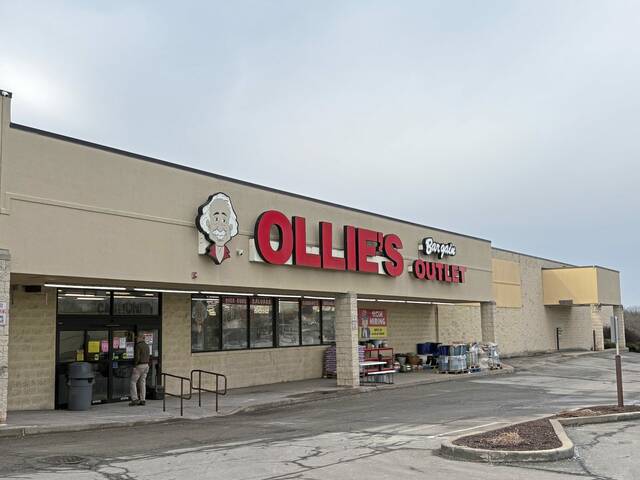The view and stream quality along Derry Township’s Atlantic Road have improved now that three abandoned mine refuse piles have been removed.
As part of a Pennsylvania program, Latrobe-based Robindale Energy Services cleared the piles at no cost to the state and renewed the 6.2-acre site with vegetation. Some of the coal refuse was able to be used as fuel for Robindale’s Seward generating station in southeastern Indiana County.
“We removed the material that was burnable,” said Jeff Polenik, Robindale’s manager of engineering. “The remaining material was contoured, and we soiled it and seeded it.
“The neighbors above have something fairly decent to look at now, with green vegetation.”
Three neighbors in the village of Atlantic agreed the view is nicer without the refuse piles looming nearby, but they had mixed opinions about other impacts of the reclamation project.
Patricia Loucks said, with the piles gone, she no longer has to contend with airborne ash from the site
“I don’t have to dust as much,” she said. “A lot of times, when the wind was blowing, you’d open the door and you’d have all that coal ash coming in.”
But, Loucks said, “It’s kind of still unsightly down there.”
She referred to some logs that remain piled on the property, adding, “I think they should have cleaned it up better.”
Loucks said the reclaimed land now attracts fewer all-terrain enthusiasts.
“I’m thankful,” she said. “Once in a while you have kids going down there with their quads, but it’s not like it used to be.”
John Datsko took notice of the increased truck traffic while crews were removing the refuse piles.
“It’s quiet now,” he said. “It looks like it’s cleaned up pretty good.”
Lois Short, 79, said she’s worried the reclamation project may have disturbed a habitat for deer, which she said are a traffic hazard when they cross the road.
She acknowledged it eliminated another hazard, recalling childhood sledding on the refuse piles.
“That could have caved in at any time,” she said. “We didn’t know that.”
Short also recalled when people would scavenge coal from the site for heating fuel and how, as a child, she wasn’t bothered by the orange hue of runoff from the coal operations.
“We used to see the orange mud, and we were fascinated that it was orange,” she said. “We didn’t know any better.”
“I think it’s a good thing that they did that,” Short said of the refuse piles’ removal. “It looks a lot nicer, and I’m sure it has some health benefits.”
According to the Pennsylvania Department of Environmental Protection, the reclamation project has improved water quality in Union Run, a waterway that empties into Loyalhanna Creek more than 4 miles downstream from the site.
The project removed a source of abandoned mine drainage and reduced the amount of sediment washing into the run and creating suspended solids in the water, DEP said.
Robindale completed removal of coal refuse from the site in March 2024. By May of that year, the company had removed sediment ponds and seeded and mulched the ground.
Robindale used “silt socks” around the perimeter of the site to help control runoff, Polenik said.
The abandoned site had been mined by the Atlantic Crushed Coal and Coke Co. That company began operating a series of mines in Derry Township between 1894 and 1907, according to information in a 2003 Derry Area comprehensive plan.
The work area for the reclamation project did not include a central row of historic coke ovens on the property, Polenik said.
The project was recognized with this year’s Best Overall Reclamation Award from the Pennsylvania Coal Alliance.
The organization said Robindale used “nearby and on-site soil to blend in with the surrounding topography and establish positive drainage. As lush vegetative cover was established, sediment runoff entering Union Run was significantly reduced.”


